Associate Editors
Associate Editors: IEEE Open Journal of Nanotechnology
- Mahmoud ALMASRI
Department of Electrical Engineering and Computer Science, University of Missouri, Missouri, USA
Website: https://engineering.missouri.edu/faculty/mahmoud-almasri/#
Dr. Mahmoud Almasri received his B.S. and M.S. degrees in Physics from Bogazici University, Turkey in 1995 and 1997, respectively, his Ph.D. degree in Electrical Engineering from Southern Methodist University in 2001, and worked as postdoctoral fellows at Albany Nano Tech, NY and Georgia Institute of Technology. He is currently an associate professor in electrical engineering and computer science at the University of Missouri. Almasri’s research and published materials include uncooled infrared microblometers, micromirrors, Coulter counter, micropost array for mapping cell traction forces, wafer level packaging and three-dimensional microscaffolds for brain slice and neuronal network studies in vitro and in situ.
- Masayoshi ARITA
Graduate School of Information Science and Technology, Hokkaido University, Hokkaido, Japan
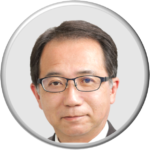 Masashi Arita received the B.S. degree in materials science from Hiroshima University, Hiroshima, Japan, in 1980, and the Ph.D. degree in solid state physics from Eidgenössische Technische Hochschule (ETH) Zurich, Zurich, Switzerland, in 1987. He joined Ciba-Geigy Japan in 1987, where he was engaged in research on crystallography and electrophotography of organic substances. Since joining Nagoya University, Nagoya, Japan, in 1990, he has been engaged in research on crystallography and physical properties of metallic nano particles and ultrathin films. Since 1997, he has been an Associate Professor at the Graduate School of Engineering as well as the Graduate School of Information Science and Technology, Hokkaido University, Sapporo, Japan. His major subject at present is in-situ electron microscopy of electronic devices.
Masashi Arita received the B.S. degree in materials science from Hiroshima University, Hiroshima, Japan, in 1980, and the Ph.D. degree in solid state physics from Eidgenössische Technische Hochschule (ETH) Zurich, Zurich, Switzerland, in 1987. He joined Ciba-Geigy Japan in 1987, where he was engaged in research on crystallography and electrophotography of organic substances. Since joining Nagoya University, Nagoya, Japan, in 1990, he has been engaged in research on crystallography and physical properties of metallic nano particles and ultrathin films. Since 1997, he has been an Associate Professor at the Graduate School of Engineering as well as the Graduate School of Information Science and Technology, Hokkaido University, Sapporo, Japan. His major subject at present is in-situ electron microscopy of electronic devices.
3. Chang-Ki BAEK
Department of Creative IT Engineering (CiTE) and Department of Electrical Engineering, Pohang University of Science and Technology (POSTECH), Gyeongsangbuk-do, Korea
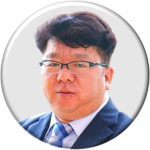 Chang-Ki Baek is an Associate Professor in Department of Creative IT Engineering (CiTE) and Electrical Engineering (EE) in Pohang University of Science & Technology (POSTECH), the Vice Director of POSTECH Future IT Innovation Laboratory (i-Lab), and the Director of Nano Energy & Sensor Technology (NEST) Center. He is an IEEE Senior Member and IEEE ED/SSC/MTT Yeongnam (Taegu) Chapter Chair. He was a research fellow in the Computational Sciences Division, Korea Institute for Advanced Study (KIAS) from 2008 to 2010 and joined POSTECH as a Research Assistant Professor in Department of Electrical Engineering (EE) in 2010. His current research interests include (1) advanced nanoscale logic and memory devices (DRAM and Flash Cell), (2) nanowire based photovoltaic and thermoelectric devices and IoT sensor applications, and (3) theoretical modeling and quantum simulation of nanoscale devices.
Chang-Ki Baek is an Associate Professor in Department of Creative IT Engineering (CiTE) and Electrical Engineering (EE) in Pohang University of Science & Technology (POSTECH), the Vice Director of POSTECH Future IT Innovation Laboratory (i-Lab), and the Director of Nano Energy & Sensor Technology (NEST) Center. He is an IEEE Senior Member and IEEE ED/SSC/MTT Yeongnam (Taegu) Chapter Chair. He was a research fellow in the Computational Sciences Division, Korea Institute for Advanced Study (KIAS) from 2008 to 2010 and joined POSTECH as a Research Assistant Professor in Department of Electrical Engineering (EE) in 2010. His current research interests include (1) advanced nanoscale logic and memory devices (DRAM and Flash Cell), (2) nanowire based photovoltaic and thermoelectric devices and IoT sensor applications, and (3) theoretical modeling and quantum simulation of nanoscale devices.
4. Parthasarathi CHAKRABORTI
Process Engineer, Intel Corporation, Oregon, USA
 Dr. Chakraborti is working at Intel Corporation in Hillsboro, OR, where he is leading efforts on development and ramping of miniaturized technology nodes for next generation semiconductors and implementing them into high-volume manufacturing. Prior to joining Intel, he earned his Ph.D. in Material Science from Georgia Institute of Technology in 2016, with focus on developing Integrated Power Modules with Tantalum-based high-density ultrathin capacitors and packaging them as on-chip embedded thin-films. His research work was appreciated and supported by many companies such as Texas Instruments, Maxim Integrated, Qualcomm, HC Starck and AVX Corp and later implemented as a product by some of them (Texas Instruments, AVX Corporation and HC Starck).
Dr. Chakraborti is working at Intel Corporation in Hillsboro, OR, where he is leading efforts on development and ramping of miniaturized technology nodes for next generation semiconductors and implementing them into high-volume manufacturing. Prior to joining Intel, he earned his Ph.D. in Material Science from Georgia Institute of Technology in 2016, with focus on developing Integrated Power Modules with Tantalum-based high-density ultrathin capacitors and packaging them as on-chip embedded thin-films. His research work was appreciated and supported by many companies such as Texas Instruments, Maxim Integrated, Qualcomm, HC Starck and AVX Corp and later implemented as a product by some of them (Texas Instruments, AVX Corporation and HC Starck).
5. Lixin DONG
Department of Biomedical Engineering, City University of Hong Kong, Hong Kong SAR, China
 Lixin Dong received the B.S. and M.S. degrees in mechanical engineering from Xi’an University of Technology (XUT), China, in 1989 and 1992, respectively, and the Ph.D. degree in micro systems engineering from Nagoya University, Japan, in 2003.
Lixin Dong received the B.S. and M.S. degrees in mechanical engineering from Xi’an University of Technology (XUT), China, in 1989 and 1992, respectively, and the Ph.D. degree in micro systems engineering from Nagoya University, Japan, in 2003.
He became a Research Associate in 1992, a Lecturer in 1995, and an Associate Professor in 1998 at XUT. In 2003, he became an Assistant Professor at Nagoya University. In 2004, he joined the ETH Zurich, Switzerland, as a Research Scientist, where he became a Senior Research Scientist in 2005, and led the NanoRobotics Group, Institute of Robotics and Intelligent Systems. Since December 2008, he has been an Assistant Professor at Michigan State University. His current research interests include nanorobotics, NEMS, etc.
Dr. Dong is a Senior Editor (2015-) and an Associate Editor (2007-2014) of the IEEE Transactions on Nanotechnology (TNANO). He has been a Representative of IEEE Robotics and Automation Society (RAS) in IEEE Nanotechnology Council AdCom and a Representative of TNANO in the Publication Activities Board of the IEEE RAS since 2012. He received the NSF CAREER Award in 2011, the IEEE Transactions on Automation Science and Engineering (T-ASE) Googol Best New Application Paper Award in 2007, and many other awards.
6. Atsuhiko FUKUYAMA
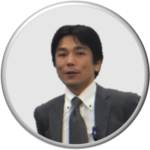 Department of Electronic Physics, Miyazaki University, Miyazaki, Japan
Department of Electronic Physics, Miyazaki University, Miyazaki, Japan
- Education: PhD (Engineering), Tohoku University; MS (Engineering), University of Miyazaki; BS, University of Miyazaki
- Research Field: Electronic materials/Electric materials; Nanostructural physics; Thin film/Surface and interfacial physical properties; Applied materials
- Publications: https://www.researchgate.net/scientific-contributions/21266544_Atsuhiko_Fukuyama
7. Kalita GOLAP
Department of Physical Science and Engineering, Nagoya Institute of Technology, Aichi, Japan

- Education: PhD (Electrical & Electronics Engineering), Chubu University; MS (Energy Technology), Tezpur University
- Research Field: Clean-Green Energy Technology Innovation; Energy Generation (Advance photovoltaic Technology, Fuel Cell Technology); Energy Storage [All-Solid State battery ((ASSBs), Metal-Air Battery, Supercapacitor]; Hydrogen Energy (Electrochemical water splitting); Sensor Technology (IoT sensors); Waste to wealth/Energy Technology; Advance Materials for flexible electronics, Biodegradable electronics
- Publications: https://www.researchgate.net/profile/Golap_Kalita
8. Jr-Hau HE
Electrical Engineering, King Abdullah University of Science and Technology, Thuwal, Saudi Arabia
 Dr. Jr-Hau He is an Associate Professor of Electrical Engineering program at King Abdullah University of Science & Technology (KAUST). He was a Visiting Scholar at Georgia Tech (2005), a Postdoc Fellow at National Tsing Hua University (2006) and Georgia Tech (2007), a Visiting Professor at Georgia Tech (2008), UC Berkeley (2010 and 2014), and UC San Diego (2012-2013), HKPolyU (Dec. of 2014), and University Lille 1 (May of 2016) and a tenured Asistant/Associate Professor at National Taiwan University (2007-2014).
Dr. Jr-Hau He is an Associate Professor of Electrical Engineering program at King Abdullah University of Science & Technology (KAUST). He was a Visiting Scholar at Georgia Tech (2005), a Postdoc Fellow at National Tsing Hua University (2006) and Georgia Tech (2007), a Visiting Professor at Georgia Tech (2008), UC Berkeley (2010 and 2014), and UC San Diego (2012-2013), HKPolyU (Dec. of 2014), and University Lille 1 (May of 2016) and a tenured Asistant/Associate Professor at National Taiwan University (2007-2014).
He has been a pioneer in optoelectronics, which reflects on his achievement of photon management on the light harvesting devices. He has conducted highly interdisciplinary researches to bridge those gaps between various research fields and between academia and industry. The great success of his research is reflected by his research funding, publications, awards, honors, patent and technology transfer to industry. He has grants received: > US$ 11M and garnered ~10000 citations for a body of work consisted of >200 peer reviewed journal articles and 18 patents with 53 of H factor over his career and over 200 presentations in international conferences. The nanotechnology he has developed has been transferred constantly to energy and LED industry in Taiwan and Saudi Arabia.
9. Henry HESS
 Biomedical Engineering, Columbia University, New York, USA
Biomedical Engineering, Columbia University, New York, USA
Professor Hess directs Columbia’s Hess Laboratory on Nanobiotechnology – Synthetic Biology. His lab focuses on the engineering applications of nanoscale motors. Such microscopic motors with the ability to create forces and drive active movement with high efficiency enable new approaches to a wide range of nanotchnologies, including biosensing, drug delivery, molecular assembly, and active materials.
10. Akio HIGO
 Reserch Center for Advanced Science and Technology, University of Tokyo, Tokyo, Japan
Reserch Center for Advanced Science and Technology, University of Tokyo, Tokyo, Japan
- Education: PhD (Engineering), University of Tokyo; MS (Engineering), University of Tokyo; BS (Engineering) Seikei University
- Research Field: MEMS/NEMS for Photonic Crystal Devices; Optically Assisted Electrostatic Actuators; MEMS Display; Variable Optical Attenuators; MEMS/NEMS Optical Modulators with Waveguides; Vapor-Liquid-Solid Growth Applications for Opitcal/Photonic NEMS
- Publications: http://toshi.iis.u-tokyo.ac.jp/toshilab/?Members/Akio%20Higo
11. Xiaoning JIANG
Department of Mechanical and Aerospace Engineering, North Carolina State University, North Carolina, USA
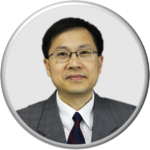 Dr. Jiang has 9 years of industrial experience before he joined NC State in 2009. At the graduate level, he teaches micro-transducers incorporated with smart materials and micro/nanostructures (MAE 532). At the undergraduate level he teaches Solid Mechanics (MAE 314), Strength of Mechanical Components (MAE 316) Principles of Automatic Control (MAE 435), and Non-destructive Testing and Evaluation (MAE 440, with lab modules). As a faculty advisor, Dr. Jiang looks for hard-working students who have a strong background in physics and acoustics and who are interested in developing strong instrumentation skills. His research is attractive to students who are interested in cutting-edge research in the biomedical, mechanical or aerospace areas, and who are interested in advanced imaging and therapy methods and techniques.
Dr. Jiang has 9 years of industrial experience before he joined NC State in 2009. At the graduate level, he teaches micro-transducers incorporated with smart materials and micro/nanostructures (MAE 532). At the undergraduate level he teaches Solid Mechanics (MAE 314), Strength of Mechanical Components (MAE 316) Principles of Automatic Control (MAE 435), and Non-destructive Testing and Evaluation (MAE 440, with lab modules). As a faculty advisor, Dr. Jiang looks for hard-working students who have a strong background in physics and acoustics and who are interested in developing strong instrumentation skills. His research is attractive to students who are interested in cutting-edge research in the biomedical, mechanical or aerospace areas, and who are interested in advanced imaging and therapy methods and techniques.
12. Do-Nyun KIM
Associate Professor, Mechanical Engineering, Seoul National University, Korea
Website: https://ssdl.snu.ac.kr/
Dr. Do-Nyun Kim has received his bachelor’s (2000) and master’s (2002) degrees from Seoul National University. He worked as a full-time lecturer at the Korea Air Force Academy from 2002 to 2005. After he received the Ph.D. (2009) in the department of mechanical engineering at MIT, he worked as a postdoctoral associate in the department of biological engineering at MIT. He joined as a faculty member in the department of mechanical and aerospace engineering at Seoul National University in 2013. His research fields are structural analysis and design based on computational mechanics with experties on the finite element method. In recent years, he has focused on the design and analysis of mechanical meta-materials and DNA-based nanostructures as well as the development of multi-scale and multi-physics modeling and analysis techniques to efficiently simulate a complex mechanical behavior of structures in various physical systems.
13. Kazunori KOGA
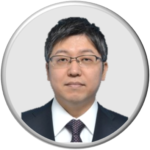 Department of Electronics, Kyushu University, Fukuoka, Japan
Department of Electronics, Kyushu University, Fukuoka, Japan
- Education: PhD (Engineering), University of Tokyo; MS (Engineering), University of Tokyo; BS (Engineering) Seikei University
- Research Field: Plasma Engineering
- Publications: https://hyoka.ofc.kyushu-u.ac.jp/search/details/K000267/english.html
14. Lianqing LIU
Shenyang Institute of Automation, the Chinese Academy of Sciences, Shenyang, China
 Lianqing Liu (M’09) received the B.S. degree in Industry Automation from Zhengzhou University, Zhengzhou, China, in 2002, and the Ph.D. degree from Shenyang Institute of Automation, Chinese Academy of Sciences, Shenyang, China, in 2009.
Lianqing Liu (M’09) received the B.S. degree in Industry Automation from Zhengzhou University, Zhengzhou, China, in 2002, and the Ph.D. degree from Shenyang Institute of Automation, Chinese Academy of Sciences, Shenyang, China, in 2009.
He is currently a Professor at Shenyang Institute of Automation, Chinese Academy of Sciences. His current research interests include nanorobotics, intelligent control, and biosensors.
Dr. Liu was awarded the Early Government/Industrial Career Award by the IEEE Robotics and Automation Society in May 2011, the Lu Jiaxi Young Scientist Award of the Chinese Academy of Sciences in January 2011, and the President Award of the Chinese Academy of Sciences in 2009.
15. Jinshui MIAO
Professor, Shanghai Institute of Technical Physics, Chinese Academy of Sciences, Shanghai, China
Website: people.ucas.edu.cn/~miaojinshui?language=en
Dr. Jinshui Miao joined Shanghai Institute of Technical Physics, Chinese Academy of Sciences (SITP-CAS) as a professor in 2020. Before joining SITP-CAS, he was a postdoctoral researcher at the Electrical and Systems Engineering of the University of Pennsylvania working with Professor Deep M. Jariwala since 2018. Jinshui Miao received his Ph.D. in Electrical Engineering from Michigan State University in May 2018 under supervision of Professor Chuan Wang. Jinshui Miao received his B.S. in Applied Physics and M.S. in Condensed Matter Physics from Shandong University and University of Chinese Academy of Sciences, respectively. Jinshui Miao’s work during his Ph.D. and postdoc pioneered in the field of using low-dimensional semiconductors for electronic and optoelectronic devices. Jinsui Miao’s current reserch focuses on infrared photodectors and AI vision technology.
16. Masahiro NOMURA
Electron/Phonon Band Engineering, The University of Tokyo, Tokyo, Japan
 Masahiro Nomura received B.E, M.E. and Ph. D. degrees in the applied physics all from the University of Tokyo, Japan, in 2000, 2002, and 2005, respectively. During 2004-2005, he was a Research Fellow of the Japan Society for the Promotion of Science. He joined Nanoelectronics Collaborative Research Center in 2005 and Institute for Nano Quantum Information Electronics, the University of Tokyo in 2007, as a Project Research Associate, and investigated laser oscillation and light-matter interactions in semiconductor quantum dot-nanocavity coupled systems. He was promoted to an Associate Professor in 2010 and has been investigating manipulation of transport of quanta such as photons and phonons in semiconductor nanostructures; especially in photonic and phononic crystal nanostructures. His main interest is now control of heat transport by phononics and its application to thermoelectrics. He is also a Guest Professor of University of Freiburg, Germany since 2013. He investigates thermoelectric properties of nanostructured materials in Prof. O. Paul’s group. Prof. Nomura received The Young Scientists’ Prize, Commendation for Science and Technology by the Minister of Education, Culture, Sports, Science and Technology in 2012; and 5 other awards.
Masahiro Nomura received B.E, M.E. and Ph. D. degrees in the applied physics all from the University of Tokyo, Japan, in 2000, 2002, and 2005, respectively. During 2004-2005, he was a Research Fellow of the Japan Society for the Promotion of Science. He joined Nanoelectronics Collaborative Research Center in 2005 and Institute for Nano Quantum Information Electronics, the University of Tokyo in 2007, as a Project Research Associate, and investigated laser oscillation and light-matter interactions in semiconductor quantum dot-nanocavity coupled systems. He was promoted to an Associate Professor in 2010 and has been investigating manipulation of transport of quanta such as photons and phonons in semiconductor nanostructures; especially in photonic and phononic crystal nanostructures. His main interest is now control of heat transport by phononics and its application to thermoelectrics. He is also a Guest Professor of University of Freiburg, Germany since 2013. He investigates thermoelectric properties of nanostructured materials in Prof. O. Paul’s group. Prof. Nomura received The Young Scientists’ Prize, Commendation for Science and Technology by the Minister of Education, Culture, Sports, Science and Technology in 2012; and 5 other awards.
17. Shinichiro NOMURA
Division of Mechanical Engineering, Tohoku University, Sendai, Japan
 NOMURA M. Shin-ichiro received his B.S. degree from theShizuoka University (1997), M.S. degree from the Nagoya University(1999), and Dr. of Science degree from the Kyoto University (2002). He then spent five years in Tokyo Medical & Dental University as post-doc and Research Associate Professor (junior). Next, he spent three years in iCeMS, Kyoto Univ. (2008-2011). Then he joined the TOHOKU University. He was a researcher of JST PRESTO (Structures and control of interfaces).
NOMURA M. Shin-ichiro received his B.S. degree from theShizuoka University (1997), M.S. degree from the Nagoya University(1999), and Dr. of Science degree from the Kyoto University (2002). He then spent five years in Tokyo Medical & Dental University as post-doc and Research Associate Professor (junior). Next, he spent three years in iCeMS, Kyoto Univ. (2008-2011). Then he joined the TOHOKU University. He was a researcher of JST PRESTO (Structures and control of interfaces).
18. Takeo OHNO
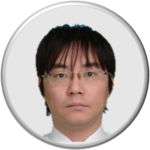 Graduate School of Engineering, Oita University, Oita, Japan
Graduate School of Engineering, Oita University, Oita, Japan
19. Aaron T. OHTA
Department of Electrical Engineering, University of Hawaii at Manoa, Hawaii, USA
Website: https://ee.hawaii.edu/faculty/profile?usr=62
Dr. Aaron T. Ohta received his B.S. degree from the University of Hawaiʻi at Mānoa in 2003, his M.S. degree from the University of California, Los Angeles in 2004, and his Ph.D. degree from the University of California, Berkeley in 2008, all in electrical engineering. He joined the University of Hawaiʻi at Mānoa in 2009, and is now a Professor of Electrical Engineering. He is the principal investigator for the University of Hawaiʻi Microdevices & Microfluidics Lab, the director of the University of Hawaiʻi Vertically Integrated Projects (VIP Program), and the advisor for the Microrobotics VIP x96 project. He is also the faculty advisor for the University of Hawaiʻi IEEE Student Branch. His research interests include the design, fabrication, and application of microfabricated devices, including microelectromechanical systems (MEMS), biomedical microdevices, microfluidics, optofluidics, and reconfigurable electronics.
20. Takeru OKADA
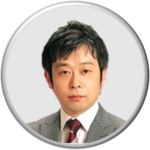 Department of Electronic Engineering, Tohoku University, Sendai, Japan
Department of Electronic Engineering, Tohoku University, Sendai, Japan
21. Inkyu PARK
Department of Mechanical Engineering, Korea Advanced Institute of Science and Technology, Daejeon, Korea
 Prof. Inkyu Park received his B.S., M.S., and Ph.D. from KAIST (1998), UIUC (2003) and UC Berkeley (2007), respectively, all in mechanical engineering. He has been with the department of mechanical engineering at KAIST since 2009 as a faculty and is currently an associate professor. His research interests are nanofabrication, smart sensors, nanomaterial-based sensors and flexible & wearable electronics. He has published more than 70 international journal articles (SCI indexed) and 100 international conference proceeding papers in the area of MEMS/NANO engineering. He is a recipient of IEEE NANO Best Paper Award (2010) and HP Open Innovation Research Award (2009-2012).
Prof. Inkyu Park received his B.S., M.S., and Ph.D. from KAIST (1998), UIUC (2003) and UC Berkeley (2007), respectively, all in mechanical engineering. He has been with the department of mechanical engineering at KAIST since 2009 as a faculty and is currently an associate professor. His research interests are nanofabrication, smart sensors, nanomaterial-based sensors and flexible & wearable electronics. He has published more than 70 international journal articles (SCI indexed) and 100 international conference proceeding papers in the area of MEMS/NANO engineering. He is a recipient of IEEE NANO Best Paper Award (2010) and HP Open Innovation Research Award (2009-2012).
22. Markondeya Raj PULUGURTHA
Biomedical Engineering and Electrical & Computer Engineering, Florida International University, Miami, USA
 Dr. P. M. Raj ‘s expertise is in packaging of electronic and bioelectronic systems, with emphasis on nanoscale RF, power and neurosensor components, and active and passive integration in ultrathin embedded modules. He is an Associate Professor in BME and ECE at Florida International University, and Adjunct Professor at Georgia Institute of Technology, Atlanta. He demonstrated several electronic packaging technologies, working with the whole electronic ecosystem, which include several semiconductor, packaging and material, tool, and end-user companies. He co-lead the development of world’s first 3D glass LTE diversity module, and 3D glass antenna-integrated package module for 5G mm wave applications. He developed advanced substrate-integrated power inductors and power capacitors for integrated power modules and voltage regulators. His research led to 320 publications, which include 8 patents. He received more than 25 best-paper awards. He co-advised more than 30 MS and PhD students who are current leaders and technology pioneers in the electronic packaging industry. He is widely recognized for his contributions in integrated passive components and technology roadmapping, component integration for bioelectronic, power and RF modules, and also for promoting the role of nanomaterials and nanostructures for electronics packaging applications. He received his PhD from Rutgers University in 1999 in ceramic engineering, ME from the Indian Institute of Science, Bangalore and BS from the Indian Institute of Technology, Kanpur (1993).
Dr. P. M. Raj ‘s expertise is in packaging of electronic and bioelectronic systems, with emphasis on nanoscale RF, power and neurosensor components, and active and passive integration in ultrathin embedded modules. He is an Associate Professor in BME and ECE at Florida International University, and Adjunct Professor at Georgia Institute of Technology, Atlanta. He demonstrated several electronic packaging technologies, working with the whole electronic ecosystem, which include several semiconductor, packaging and material, tool, and end-user companies. He co-lead the development of world’s first 3D glass LTE diversity module, and 3D glass antenna-integrated package module for 5G mm wave applications. He developed advanced substrate-integrated power inductors and power capacitors for integrated power modules and voltage regulators. His research led to 320 publications, which include 8 patents. He received more than 25 best-paper awards. He co-advised more than 30 MS and PhD students who are current leaders and technology pioneers in the electronic packaging industry. He is widely recognized for his contributions in integrated passive components and technology roadmapping, component integration for bioelectronic, power and RF modules, and also for promoting the role of nanomaterials and nanostructures for electronics packaging applications. He received his PhD from Rutgers University in 1999 in ceramic engineering, ME from the Indian Institute of Science, Bangalore and BS from the Indian Institute of Technology, Kanpur (1993).
- Agnes PURWIDYANTRI
Research Fellow, International Iberian Nanotechnology Laboratory, Portugal
Website: https://www.linkedin.com/in/agnes-purwidyantri-0b2a46ba/
Dr. Purwidyantri is currently a research fellow at INL Portugal, has an extensive experience of more than 10 years in multidiscipline research and multinational environment which allow her to closely collaborate with numbers of leading researcher. Joining INL in May 2019, she gets involved on the development of micro-total analysis system (microTAS) for a wide range of application, such as food, biomedical and environmental screening. She optimizes the performance of graphene-based microfluidic sensor for high sensitivity and specificity in DNA detection. She conducts interfacial surface engineering for optimized biomolecular binding to be carried out in FET and electrochemical platforms. She previously served the Indonesian Institute of Sciences (LIPI) at Research Unit for Clean Technology and was a project leader of several environmental screening platform development projects. She was a postdoctoral fellow at Biosensor Group, Chang Gung University, Taiwan and working on Au nanostructure for multi-implemented sensor and high-k materials for biomedical projects involving Chang Gung Memorial Hospital and Taiwan Semiconductor and Manufacturing Company (TSMC). Agnes received her PhD degree in Biomedical Engineering from Chang Gung University, Taiwan in 2017, with thesis work on the development of DNA sensor for kidney disease. Her Master´s degree was in Biotechnology and received in 2013 from Asia University, Taiwan, where she worked to exploit the enrichment of medicinal fungi through pulsed-UV light exposure. She obtained her Bachelor´s degree in Food Technology in 2007 from Soegijapranata Catholic University, Indonesia, with a project investigating corn rice physicochemical and organoleptic properties. Her research interest covers a wide range of disciplines including biosensor technology, green technology, sensing application for biomedical, food safety and quality, and environmental screening.
24. Masaya TODA
 Department of Mechanical Systems Engineering, Graduate School of Engineering, Tohoku University, Miyagi, Japan
Department of Mechanical Systems Engineering, Graduate School of Engineering, Tohoku University, Miyagi, Japan
25. Pak Kin WONG
Professor, Biomedical Engineering, Mechanical Engineering and Surgery, Pennsylvania State Univ., USA
Lab Website: https://www.bme.psu.edu/labs/sbl/index.html
Dr. Pak Kin Wong is a Professor of Biomedical Engineering, Mechanical Engineering, and Surgery at the Pennsylvania State University. Dr. Wong joined Penn State as a Full Professor through the Dean’s Frontier Faculty search at the College of Engineering in 2015. Prior to Penn State, Dr. Wong was an Associate Professor in the Department of Aerospace and Mechanical Engineering, Biomedical Engineering GIDP, the Southwest Environmental Health Sciences Center, and the Bio5 Institute at the University of Arizona. He received his Ph.D. from the University of California, Los Angeles in 2005. He has published over 100 peer-reviewed journal articles across multiple disciplines, including Nature Biomedical Engineering, Nature Communications, Science Advances, and Proceedings of National Academy of Sciences.
Dr. Wong’s research focuses on single cell biosensing for elucidating collective cell migration in tissue regeneration and cancer metastasis, and rapid infectious disease diagnostics. His laboratory has established a bioengineering framework, which integrates biomanufacturing of 3D organotypic models, single-cell biosensors, biomechanical analysis of cell-cell and cell-matrix interaction, and agent-based computational modeling, for elucidating collective cell migration from a systems perspective. Using the multidisciplinary framework, his team deciphered the stochastic emergence of leader cells during wound healing and collective cancer invasion. Toward translational applications, he has pioneered single-cell microfluidic and biosensing techniques for point-of-care diagnostics of multidrug-resistant pathogens. In collaboration with his industrial partners, e.g., GE Global Research, Dr. Wong’s group has demonstrated single-cell antimicrobial susceptibility testing and pathogen identification toward medical and defense applications. These techniques are currently being applied in multiple pre-clinical and clinical studies in Stanford University, VA Palo Alto Health Care System, Johns Hopkins University, and Penn State Hershey Medical Center.
Dr. Wong has profound contributions to the professional societies around the world. Dr. Wong is an editor of IEEE Nanotechnology Magazine, IEEE Transaction on Nanotechnology, SLAS Technology, and Scientific Reports. He served in organizing committees for numerous international conferences, including General Chair in IEEE NANOMED 2018 in Hawaii and General Co-chair in IEEE NEMS 2017 in Los Angeles. Among other honors, Dr. Wong was awarded the NIH Director’s New Innovator Award in 2010, Arizona Engineering Faculty Fellow in 2011, AAFSAA outstanding Faculty Award in 2013, and JALA 10 – A Top 10 Breakthrough in Innovation in 2015. Dr. Wong is elected as a Fellow of the Royal Society of Chemistry, American Institute for Medical and Biological Engineering, and Society for Laboratory Automation and Screening for his contributions in biomedical engineering and nanomedicine.
- Jie XU
Assistant Scientist, Argonne National Laboratory, USA
Website: https://www.anl.gov/profile/jie-xu
Dr. Jie Xu is an Assistant Scientist at the Argonne National Laboratory, USA. She received her PhD from Nanjing University, China and worked as a postdoctoral fellow at Standford University before joining the ANL. More than 35 journal papers were published at top journals, including Science, Nature, Nature Electronics, etc. She has selected for MIT Technology Review Innovators Under 35 in 2021.
27. Sheng XU
Department of NanoEngineering, University of California, San Diego, USA
 Professor Sheng Xu was appointed in July 2015 as a member of the faculty in the Department of NanoEngineering at UC San Diego. Xu was a postdoctoral research associate in Frederick Seitz Materials Research Laboratory from 2011 to 2015 at University of Illinois at Urbana-Champaign, where he developed advanced wearable electronic systems for healthcare and energy applications. He received his Ph.D. in Materials Science and Engineering in 2010 at Georgia Institute of Technology, and was the recipient of the 2011 IUPAC Prize for Young Chemists for his Ph.D. research on oxide nanowire arrays for energy sciences. He obtained his B.S. in Chemistry and Molecular Engineering from Peking University in Beijing, China in 2006.
Professor Sheng Xu was appointed in July 2015 as a member of the faculty in the Department of NanoEngineering at UC San Diego. Xu was a postdoctoral research associate in Frederick Seitz Materials Research Laboratory from 2011 to 2015 at University of Illinois at Urbana-Champaign, where he developed advanced wearable electronic systems for healthcare and energy applications. He received his Ph.D. in Materials Science and Engineering in 2010 at Georgia Institute of Technology, and was the recipient of the 2011 IUPAC Prize for Young Chemists for his Ph.D. research on oxide nanowire arrays for energy sciences. He obtained his B.S. in Chemistry and Molecular Engineering from Peking University in Beijing, China in 2006.
28. Atsushi YAMAMOTO
 Research Institute for Energy Conservation, AIST, Ibaraki, Japan
Research Institute for Energy Conservation, AIST, Ibaraki, Japan
- Education: University of Tokyo
- Research Field: Thermoelectric energy conversion
- Publication: https://scholar.google.com/citations?user=Tni_XSYAAAAJ&hl=en
- Da-Jeng YAO
Professor, ASME fellow, RSC Fellow
Department of Power Mechanical Engineering, Institute of NanoEngineering and MicroSystems (NEMS) and Department of Engineering and System Science
National Tsing Hua University, Taiwan
Lab Website: https://en.bmtflab.tw/
Da-Jeng Yao is a Professor at Department of Power Mechanical Engineering and Institute of NanoEngineering and MicroSystems (NEMS), also an adjunct Professor at Department of Engineering and System Science, National Tsing Hua University, Taiwan. He received his MS from Department of Mechanical Engineering, Lehigh University in 1996, and Ph.D. from Department of Mechanical and Aerospace Engineering, University of California at Los Angeles (UCLA) in 2001. More than 80 journal papers were published at top journals. He got Wu-Da-Yu Memorial Award (Young Investigator) from National Science Council in 2009, National Innovation Award in both 2012 and 2014, and Nanoscience Award by Publishing Division of Cognizure in 2015. He was awarded as ASME fellow since 2013, and RSC fellow since 2018.
30. John YEOW
Professor, University Research Chair
Systems Design Engineering, Waterloo, Canada
Lab Website: https://uwaterloo.ca/institute-nanotechnology/people-profiles/john-yeow
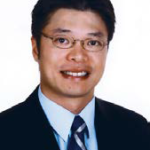 John T. W. Yeow received the B.A.Sc. degree in electrical and computer engineering, and M.A.Sc. and PhD. degrees in mechanical and industrial engineering from the University of Toronto, Toronto, ON, Canada. He is currently a Professor in the Department of Systems Design Engineering at University of Waterloo, Waterloo, ON, Canada. His current research interests are in the field of developing miniaturized biomedical instruments. He is a recipient of the Professional Engineering Ontario Young Engineer Medal, Professional Engineering Ontario Engineering Excellence Award, Natural Science & Engineering Research Canada Innovation Challenge Award, Douglas R. Colton’s Medal of Research Excellence, Micralyne Microsystems Design Award, Ontario Ministry of Research and Innovation’s Early Researcher Award, and University of Toronto Alumni Association 7T6 Early Career Award. He is a Canada Research Chair in Micro/Nanodevices, and a University Research Chair. He is the Editor-in-Chief of the IEEE Nanotechnology Magazine, and an Associate Editor of the IEEE Transactions of Nanotechnology. He is a Fellow of the Canadian Academy of Engineering, the Engineering Institute of Canada, Engineers Canada, and a Member of College of New Scholars, Artists and Scientists of the Royal Society of Canada. He is also a 2017/2018 IEEE Nanotechnology Technical Council Distinguished Lecturer.
John T. W. Yeow received the B.A.Sc. degree in electrical and computer engineering, and M.A.Sc. and PhD. degrees in mechanical and industrial engineering from the University of Toronto, Toronto, ON, Canada. He is currently a Professor in the Department of Systems Design Engineering at University of Waterloo, Waterloo, ON, Canada. His current research interests are in the field of developing miniaturized biomedical instruments. He is a recipient of the Professional Engineering Ontario Young Engineer Medal, Professional Engineering Ontario Engineering Excellence Award, Natural Science & Engineering Research Canada Innovation Challenge Award, Douglas R. Colton’s Medal of Research Excellence, Micralyne Microsystems Design Award, Ontario Ministry of Research and Innovation’s Early Researcher Award, and University of Toronto Alumni Association 7T6 Early Career Award. He is a Canada Research Chair in Micro/Nanodevices, and a University Research Chair. He is the Editor-in-Chief of the IEEE Nanotechnology Magazine, and an Associate Editor of the IEEE Transactions of Nanotechnology. He is a Fellow of the Canadian Academy of Engineering, the Engineering Institute of Canada, Engineers Canada, and a Member of College of New Scholars, Artists and Scientists of the Royal Society of Canada. He is also a 2017/2018 IEEE Nanotechnology Technical Council Distinguished Lecturer.
31. Xinge YU
Department of Biomedical Engineering, City University of Hong Kong, Hong Kong SAR, China
 Xinge Yu is currently an Assistant Professor of Biomedical Engineering at City University of Hong Kong. Xinge Yu received his B.S. in engineering and technology in optoelectronics from the University of Electronic Science and Technology of China (UESTC) in 2009. He finished his Ph.D. research in solution process/printable flexible electronics at Northwestern University and recived his Ph.D. degree in Optical Engineering from UESTC in 2015. From 2015 to 2018, Xinge Yu was a postdoctoral research associate in the Center for Bio-Integrated Electronics at Northwestern University and an adjunct research assistant professor in the Department of Materials Science and Engineering at the University of Illinois at Urbana-Champaign, where he was working on novel flexible and bio-electronics. Now, his research focus on developing skin-integrated electronics and bio-electronics, and conducts multidisciplinary research addressing challenges in practical applications, such as biomedical electronics with compatible physical and chemical properties, and real-time health monitoring. He has published over 60 papers in the top journals, such as Nature, Nat. Mater., Nat. Biomed. Eng., PNAS, Sci. Adv., Adv. Mater., etc, and held 15 patents pending or granted.
Xinge Yu is currently an Assistant Professor of Biomedical Engineering at City University of Hong Kong. Xinge Yu received his B.S. in engineering and technology in optoelectronics from the University of Electronic Science and Technology of China (UESTC) in 2009. He finished his Ph.D. research in solution process/printable flexible electronics at Northwestern University and recived his Ph.D. degree in Optical Engineering from UESTC in 2015. From 2015 to 2018, Xinge Yu was a postdoctoral research associate in the Center for Bio-Integrated Electronics at Northwestern University and an adjunct research assistant professor in the Department of Materials Science and Engineering at the University of Illinois at Urbana-Champaign, where he was working on novel flexible and bio-electronics. Now, his research focus on developing skin-integrated electronics and bio-electronics, and conducts multidisciplinary research addressing challenges in practical applications, such as biomedical electronics with compatible physical and chemical properties, and real-time health monitoring. He has published over 60 papers in the top journals, such as Nature, Nat. Mater., Nat. Biomed. Eng., PNAS, Sci. Adv., Adv. Mater., etc, and held 15 patents pending or granted.
32. Xin ZHAO
Professor and Vice Dean, Department of Control Theory and Control Engineering, Nankai University, China
 Xin Zhao received the B.S. degree from Nankai University, Tianjin, P.R.China, in 1991, the M.S. degree from Shenyang Institute of Automation, CAS, Shenyang, P.R.China, in 1994 , and the Ph.D. degree from Nankai University, in 1997, all in control theory and control engineering. He joined the faculty at Nankai University, Tianjin, P.R.China in 1997, he is Professor and Vice Dean of College of Computer and Control Engineering. Prof. Zhao was the recipient of 1999 Excellent Professor Award, Nankai University, 2000 Inventory Prize, Tianjin Municipal Government, 2002 Excellent Professor Award of “College Key Teachers Fund”, Ministry of Education, 2002 Excellent Professor Award of “Baogang Fund” and 2007 Program for New Century Excellent Talents in University, Ministry of Education. His team pioneered robotic animal cloning and successfully got 13 cloned piglets in 2017. His research interests are in Mico-Nano Manipulation and System, including Micro manipulator, Micro system and Mathematical Biology.
Xin Zhao received the B.S. degree from Nankai University, Tianjin, P.R.China, in 1991, the M.S. degree from Shenyang Institute of Automation, CAS, Shenyang, P.R.China, in 1994 , and the Ph.D. degree from Nankai University, in 1997, all in control theory and control engineering. He joined the faculty at Nankai University, Tianjin, P.R.China in 1997, he is Professor and Vice Dean of College of Computer and Control Engineering. Prof. Zhao was the recipient of 1999 Excellent Professor Award, Nankai University, 2000 Inventory Prize, Tianjin Municipal Government, 2002 Excellent Professor Award of “College Key Teachers Fund”, Ministry of Education, 2002 Excellent Professor Award of “Baogang Fund” and 2007 Program for New Century Excellent Talents in University, Ministry of Education. His team pioneered robotic animal cloning and successfully got 13 cloned piglets in 2017. His research interests are in Mico-Nano Manipulation and System, including Micro manipulator, Micro system and Mathematical Biology.
33. Yunlong ZI
Department of Mechanical and Automation Engineering, The Chinese University of Hong Kong, Hong Kong SAR, China
 Yunlong Zi is an Assistant Professor in Department of Mechanical and Automation Engineering at the Chinese University of Hong Kong. Dr. Zi received his Ph.D. in Physics from Purdue University in 2014; his Bachelor of Engineering in Materials Science and Engineering from Tsinghua University in 2009. Before joining CUHK, he worked as a Postdoctoral Fellow at Georgia Institute of Technology during 2014-2017. His current research interests focus on high-efficiency mechanical energy harvesting through triboelectric nanogenerators (TENG), TENG triggered high-voltage applications, and self-powered systems. His work also contributed to self-aligned growth of III-V semiconductor nanowire arrays for high-performance nano-electronic devices. As the 1st author, his research studies have been published in top-notch journals, including Nature Nanotechnology, Nature Communications, Advanced Materials, Nano Letters, ACS Nano, Nano Energy, and etc. He was honored as the winner of MRS Postdoctoral Award by Materials Research Society in 2017, as the first recipient from Georgia Tech; and was highlighted in Purdue homepage as one of “5 students who are transformation makers”. His current lab webpage: https://zilab.weebly.com/
Yunlong Zi is an Assistant Professor in Department of Mechanical and Automation Engineering at the Chinese University of Hong Kong. Dr. Zi received his Ph.D. in Physics from Purdue University in 2014; his Bachelor of Engineering in Materials Science and Engineering from Tsinghua University in 2009. Before joining CUHK, he worked as a Postdoctoral Fellow at Georgia Institute of Technology during 2014-2017. His current research interests focus on high-efficiency mechanical energy harvesting through triboelectric nanogenerators (TENG), TENG triggered high-voltage applications, and self-powered systems. His work also contributed to self-aligned growth of III-V semiconductor nanowire arrays for high-performance nano-electronic devices. As the 1st author, his research studies have been published in top-notch journals, including Nature Nanotechnology, Nature Communications, Advanced Materials, Nano Letters, ACS Nano, Nano Energy, and etc. He was honored as the winner of MRS Postdoctoral Award by Materials Research Society in 2017, as the first recipient from Georgia Tech; and was highlighted in Purdue homepage as one of “5 students who are transformation makers”. His current lab webpage: https://zilab.weebly.com/

